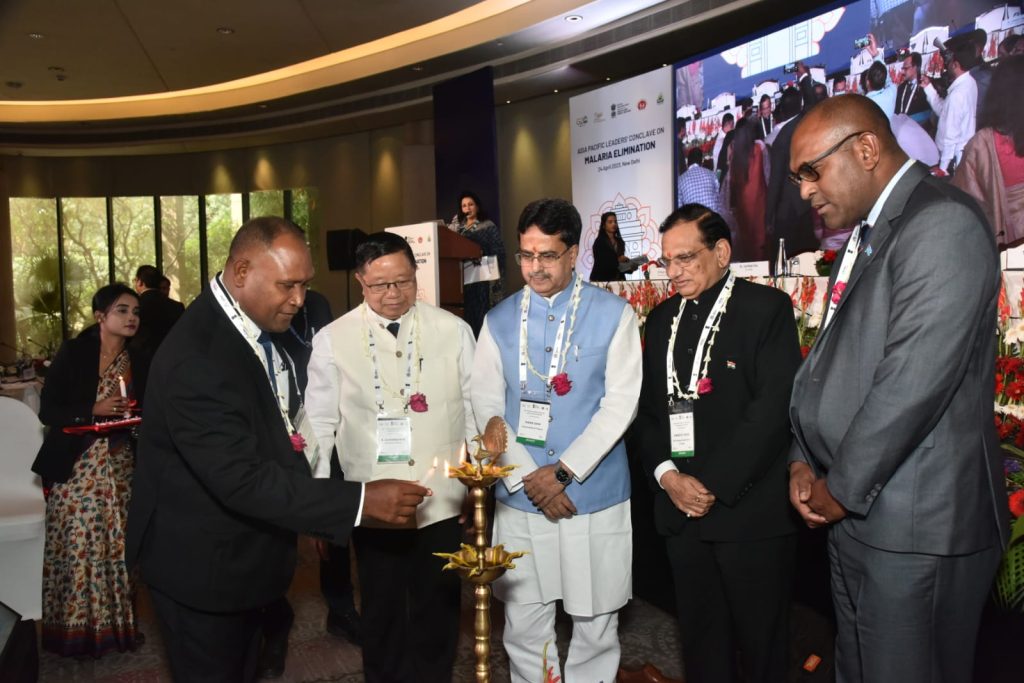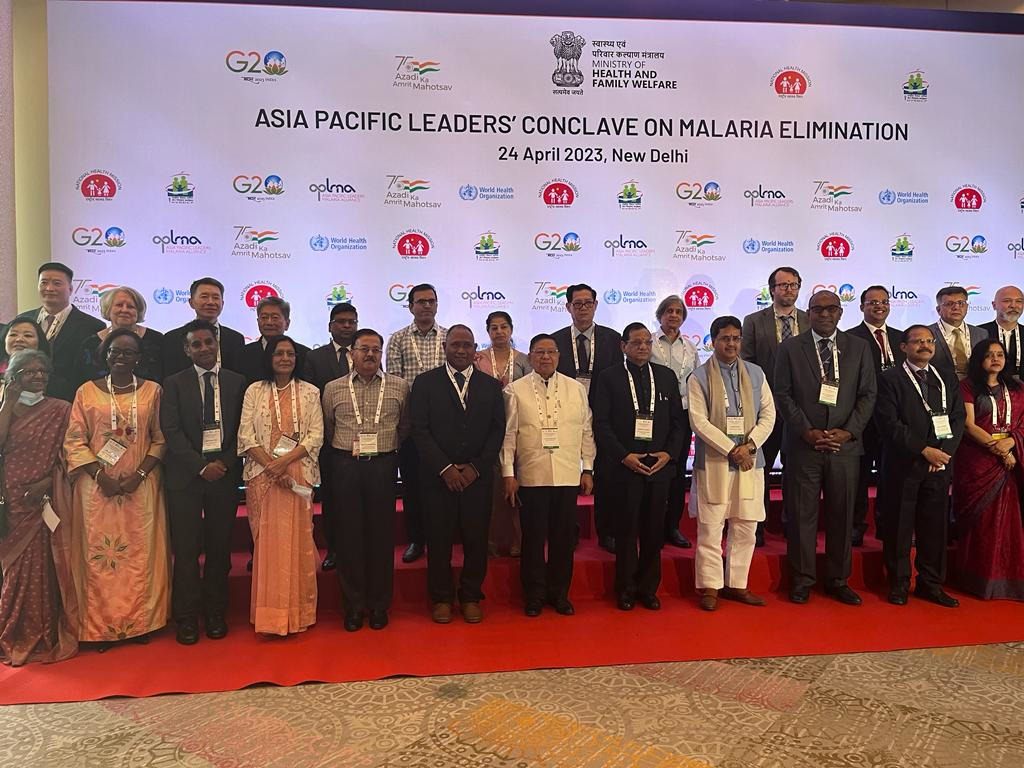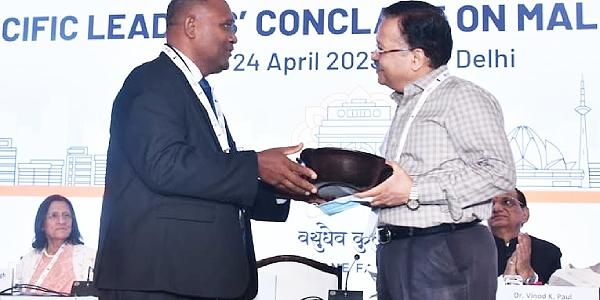Solomon Islands Government remains committed towards the 2030 malaria elimination target despite of challenges it faced.
This was reaffirmed by Minister of Health and Medical Service Dr Culwick Togamana at the Asia Pacific Leaders Conclave on Malaria Elimination 2023, in New Delhi, India on Tuesday last week.
He highlighted that Solomon Islands have made good progress against Malaria between 2000 and 2014 reducing by half the number of malaria cases however from 2015 onwards there were year on year increases in reported cases.
“In the past two years malaria incidence increased by 8.4 % and accounted for the second highest number of cases in the Western Pacific region, contributing 9% of the overall reported cases. The Annual Parasite Incidence (API) has increased by 11% over 3 years and a tripling from the 2015 baseline API”,
“Despite this increase the number of deaths reported due to malaria remained low, with 9 deaths reported in 2021 and likewise in 2022. The proportion of cases due to P. falciparum or mixed infections (with P. vivax) remained stable, with majority of cases attributed to P. vivax alone. For 2022 however, there are indications of an increase in P. falciparum cases. This is alarming considering as P. falciparum is more often associated with severe disease and death than P. vivax said Dr Togamana.

“Major causes for this resurgence of Malaria cases includes cessation of residual spraying in 2015, decline in funding to malaria program, more rapid than expected decline in insecticide bioavailability in LLINs or bed nets and stock outs of Malaria commodities. Additionally, costly and irregular logistical support such as transportation, complex and burdensome financial management processes and limited trained human resources in very remote islands, impinge on timely malaria service delivery and response”, said Dr Togamana.
Dr Togamana said despite these challenges and the current situation, the Government of Solomon Islands remains committed to the elimination goal as demonstrated by the then Prime Minister of Solomon Islands at the 2018 London Malaria Summit and commitment by the current Prime Minister in October 2022 along with heads of Governments from the Asia Pacific region elimination of malaria across the region by 2030”,
He said that these commitments have played a critical role towards a high-level meeting of whole-of-Government, whole-of-society and development partners to re-examine the path to malaria elimination for the Solomon Islands.
“The principal outcome was the “Solomon Islands Roadmap for Malaria Elimination”, which recommitted the country to malaria elimination, province-by-province, with a broad vision of achieving zero locally transmitted cases by 2030 and WHO certification three years later”, highlighted Dr Togamana.

He added that in doing so, the Ministry of Health is working to improve health systems especially in addressing issues of commodity stockouts, financing constraints and inappropriate human resourcing as per the recommendations from the Malaria program midterm review,
Dr Togamana concluded with acknowledgements to the Asia Pacific Leaders Malaria Alliance (APLMA) for implementing what he described as a very significant and strategic platform which Regional Health Ministers can assemble to share experiences and challenges and to regroup and renew commitments and carefully strategize to efficiently utilize limited resources and capabilities to achieve malaria 2030 target.
“I would also like to extend my sincerest gratitude to the Government of Australia for supporting the APLMA Platform and the APLMA Secretariate for their continued advocacy efforts to ensure malaria elimination remains a high priority agenda among the Heads of States of the region.
“To the government of India and my colleague Dr. Mansukh Mandaviya, Hon’ble Union Minister of Health & Family Welfare and Chemicals & Fertilizers, Government of India, thank you so much for graciously hosting us for this meeting”.








